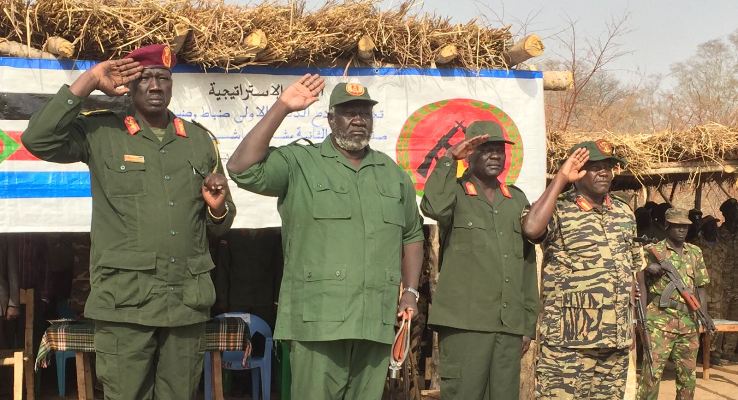SPLM-N ready to discuss U.S. humanitarian proposal: Agar

February 6, 2017 (KHARTOUM) – Sudan People’s Liberation Movement-North (SPLM-N) leader Malik Agar reiterated their readiness to discuss the U.S. proposal to deliver humanitarian assistance to civilians in the rebel-controlled areas in South Kordofan and Blue Nile states, stressing what they refuse is the control of the whole operation by the government.
in a bid to break the deadlock in the peace talks between the Sudanese government and SPLM-N, the former U.S. Special Envoy Donald Booth last November proposed that the USAID will deliver medical humanitarian aid to civilian in the rebel held areas by air directly after its inspection from the government.
The SPLM-N declined the proposal insisting on the need to transport 20% of the humanitarian aid directly from Ethiopian border town of Asosa to the rebel areas.
In an audio statement obtained by Sudan Tribune, Agar who was speaking last Saturday in the SPLM-Controlled areas in the Blue Nile said the SPLM-N didn’t reject the “Sudanese American proposal”, as he said.
The proposal provides that the USAID will deliver specific humanitarian assistance through an internal corridor to the United Nations workers in the SPLM areas, explained Agar in remarks delivered at a promotion ceremony for SPLA Second Division officers on Saturday.
“This gives the Sudanese government the upper hand in the (humanitarian) operation, and we should keep in mind the experience of UNAMID in Darfur,” he added.
The SPLM-N rejected the Sudanese government control of the humanitarian operation but didn’t decline the U.S. proposal or the proposal of the African Union mediation which provides to deliver the aid across Asosa town on the Ethiopian Sudanese border, he said.
The SPLM-N sticks to the direct delivery of 20% of humanitarian assistance through Ethiopia, pointing that the African Union High Level Implementation Panel (AUHIP) supports this idea.
Sources close to the file disclosed that the SPLM-N in its response to the U.S. proposal underscored that the safe humanitarian corridor through Asosa would enable the SPLM-N to transport its sick or wounded fighters for treatment from the land-locked controlled areas. Also this corridor enable the rebel leadership and delegates to reach the venue of peace talks and return to their bases for consultations, they said.
Sudanese government rejected Asosa corridor, saying it’s a violation of the state’s sovereignty and also allows the rebel to bring arms and ammunition from outside.
However, Agar called to not exclude Asosa corridor from the negotiating table stressing that there are “two proposals on the table, that one of the AUHIP and “the U.S. proposal with the proposed amendments”.
“And we are ready to discuss the two proposals,” he said.
Recently it was reported that the AUHIP mediators filed new proposals for the negotiating parties, and it is expected to convene a meeting between the armed groups and a Sudanese committee tasked with the implementation of the national dialogue outcome.
But Agar denied being invited to resume talks with the government. Also, he said they are not concerned by the outcome of the government-led dialogue process but they call for an inclusive and comprehensive dialogue, and a preparatory meeting to discuss the creation of a conducive environment before this constitutional process, in line with the African Union Roadmap Agreement
He further said they expect that an invitation be extended by the AUHIP for a consolations-meeting.
He said the SPLM-N is ready for peace and war alike.
“The regime challenged us in the past and can challenge us again but we are ready to take up the challenge until the Sudanese get their full rights. We will not accept half-solutions and will not postpone the war for future generations,” he added.
(ST)
